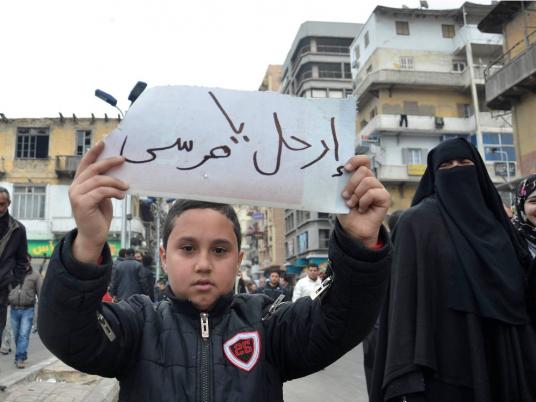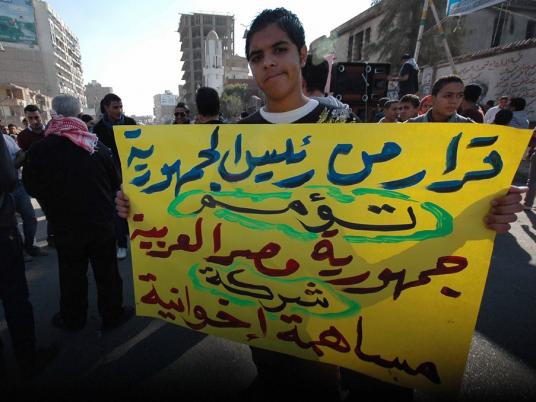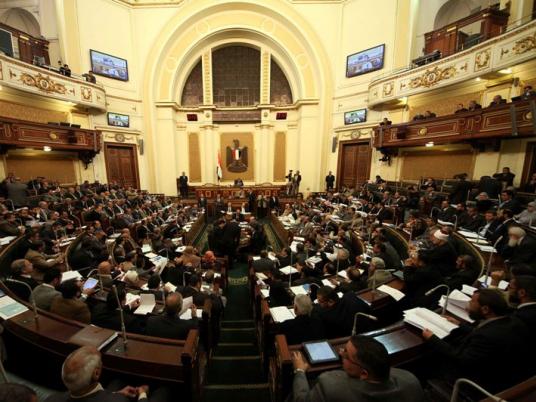
All daily papers publish headlines, features, and articles pertaining to the release of the seven Egyptian soldiers who were seized by unknown assailants in North Sinai last Thursday.
The lack of details regarding the success of the rescue mission, however, was broached in different ways, highlighting the growing rift between state-owned and independent newspapers' editorial policies.
“The return of soldiers without bloodshed or a deal,” reads the headline of state-run flagship daily Al-Ahram.
In its report, the paper focuses on the details of the rescue operation in order to underscore the supposed might of the army, which it claims was able to corner the kidnappers and force them to escape out of fear of being arrested.
Predictably, both state-owned papers Al-Akhbar and Al-Gomhorriya follow in the steps of Al-Ahram.
Al-Akhbar publishes military spokesperson Colonel Ahmed Ali's statement, made during a press conference organized by the presidency, the cabinet, the military, and the police on Wednesday. Ali claimed that the Armed Forces adopted a deceptive plan that turned the table on the kidnappers and enabled the Army to besiege them.
Freedom and Justice, the mouthpiece of the Muslim Brotherhood’s political arm, declares victory with the bold headline “And the state triumphs.”
The partisan paper writes that news of the kidnapped soldiers’ rescue was met with a great deal of happiness and enthusiasm.
“The operation to secure the release of the soldiers was conducted without any compromises, concessions, deals, or settlements,” the paper quotes presidential spokesperson Ehab Fahmy as saying.
Of course, FJP tends to make a mountain out of a molehill whenever there is news favorable to the president, whom the Muslim Brotherhood thrust into power after the disqualification of businessman Khairat al-Shater.
The paper includes an op-ed piece written by Rageb al-Bassel exclusively dedicated to highlighting the supposed distinctive traits and enormous capabilities of Mr. Morsy, which, the author claims, enable him to effectively handle important state crises.
The author repeats an oft-recited phrase used by government-backed media – that Morsy is the first civilian president of Egypt – even though this information is irrelevant to his argument.
Independent papers are skeptical of the strategy adopted by the army to secure the release of the kidnapped soldiers.
Independent daily Al-Shorouk has as its headline “Happy, yet vague, ending.” Independent paper Al-Tahrir raises questions about the vague nature of the rescue mission and the reasons for which the kidnappers’ stance suddenly changed: “Who kidnapped [the soldiers]? Why did [the kidnappers] give up their demands? And what was given them in return?”
Although authorities reportedly declared that information on the kidnappers was available yet would be kept confidential for security reasons, privately-owned Youm7 quotes anonymous sources saying that the “kidnappers belong to a Salafi militant group associated to al-Tawhid wal-Jihad Group, which was accused of involvement in the Taba and Sharm el-Sheikh bombings of 2004.”
Independent daily Al-Watan openly challenges the authorities with a red, bold headline: “The Deal.”
The paper claims military intelligence officers agreed to a deal with the kidnappers through a mediator from Ahl al-Sunnah wal Jammah group. It adds that the kidnappers listed two demands as conditions for the release of the kidnappers. “The kidnappers freed the soldiers after the security apparatus vowed not to go after them and pledged to release 18 detainees belonging to the Islamic Jihad Movement,” an anonymous source told the paper.
On the same front, Al-Watan explains that negotiations regarding the soldiers’ release were conducted with the help of Sinai tribal sheikhs and Salafi Jihadist groups, with the approval of the president.




